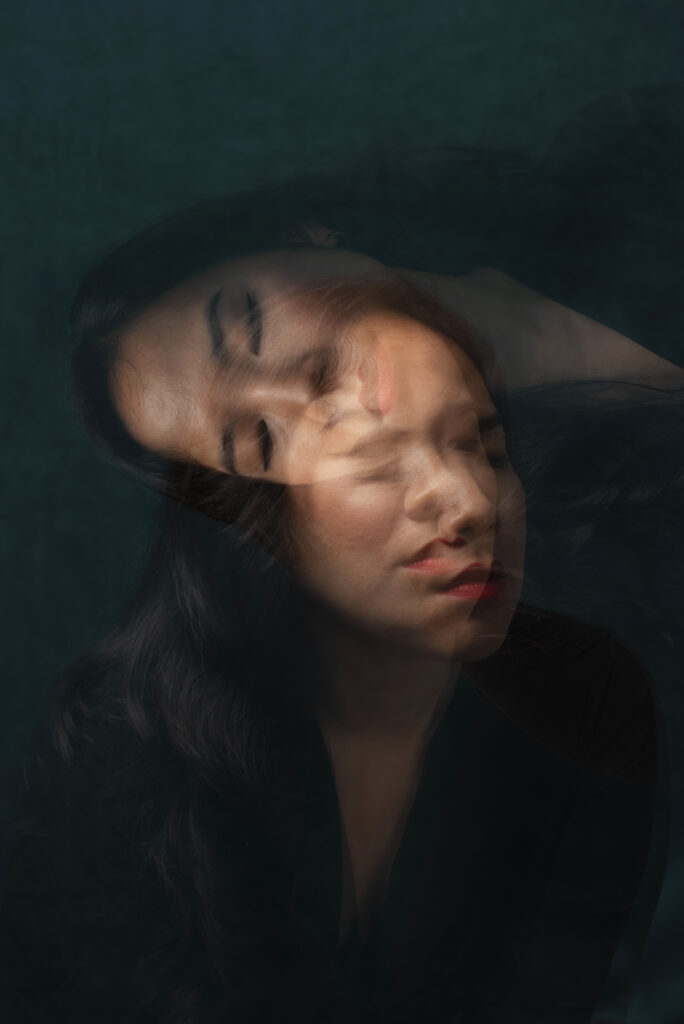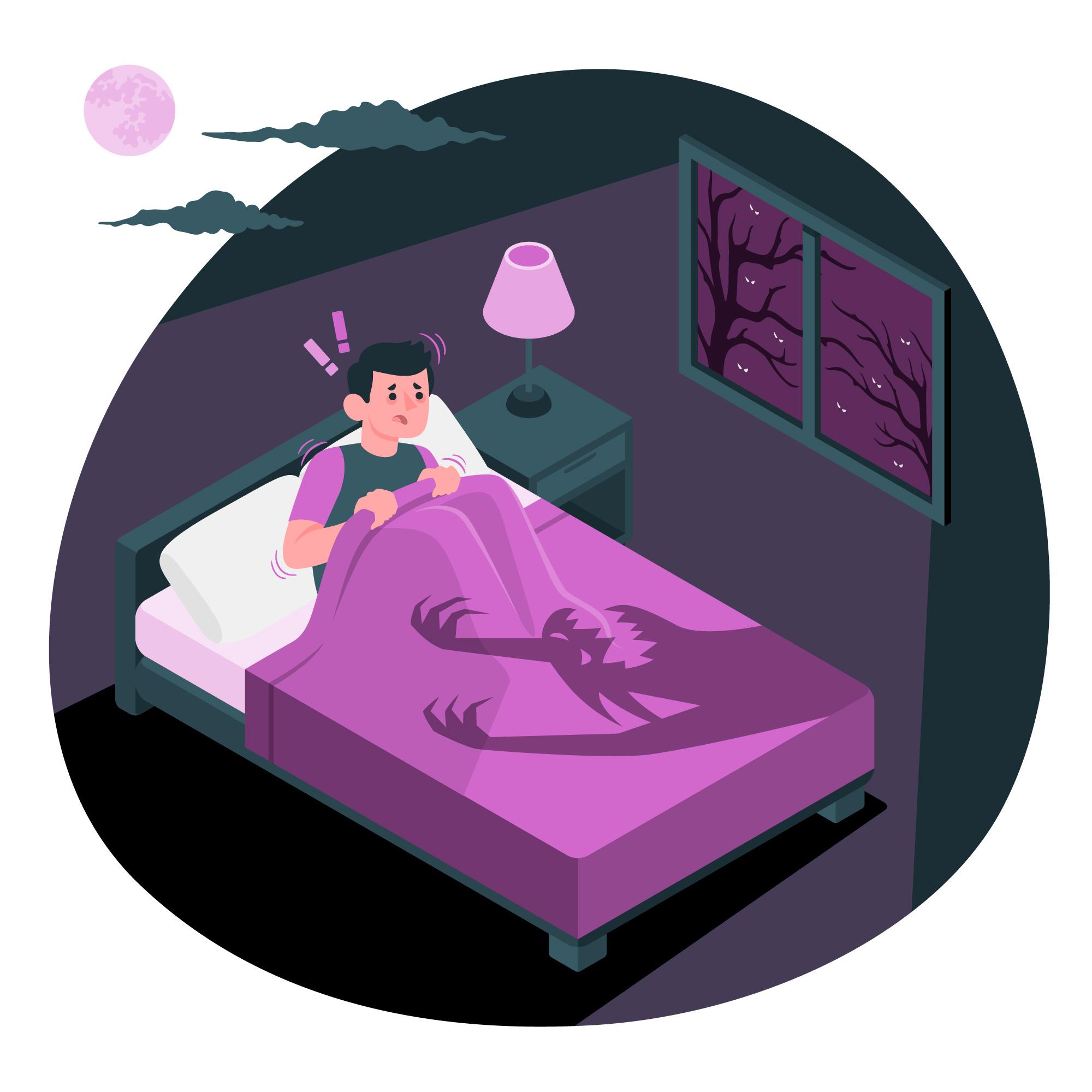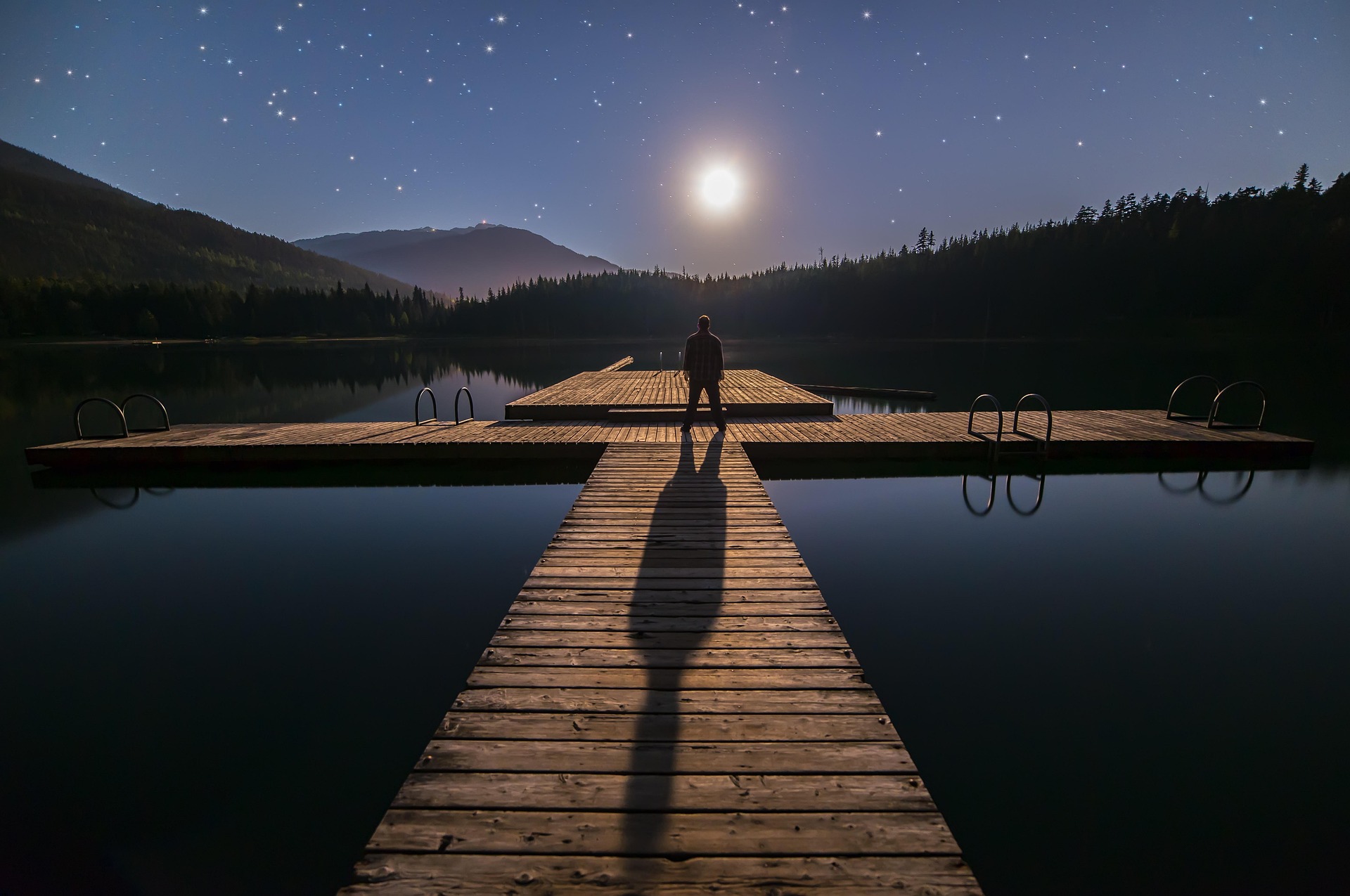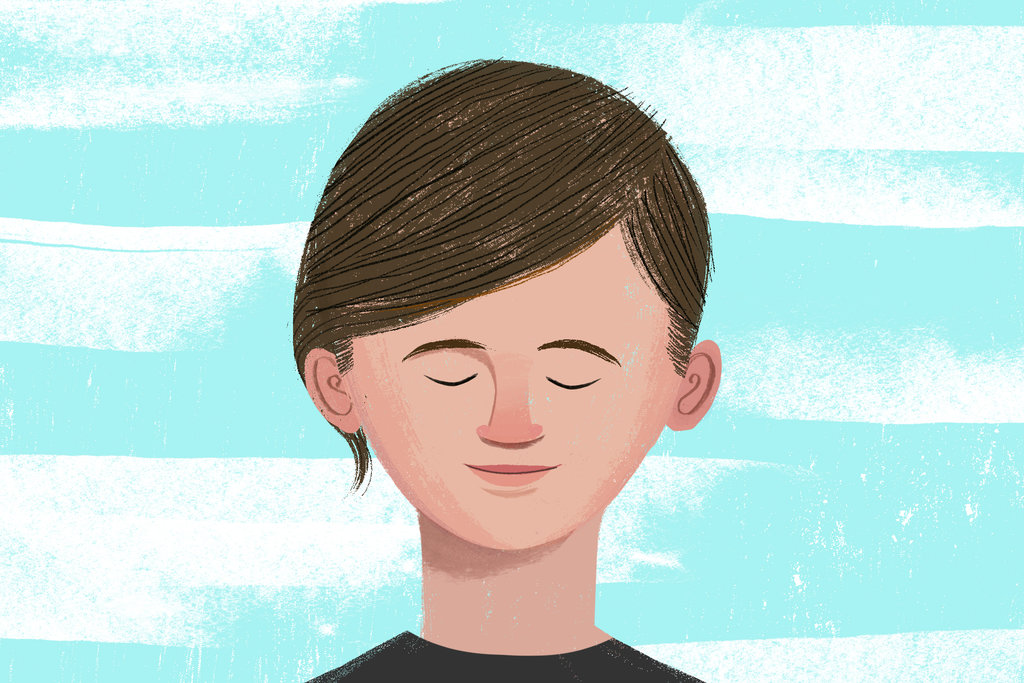Illustration of sleep paralysis by storyset on Freepik
If you have found this article, you might have already had one or a few episodes of sleep paralysis. It is a prevalent condition that impacts around 7.6% of individuals in the general population at some point in their lives. Sleep paralysis may occur as a single episode without any recurrence, or it could show up repeatedly on multiple occasions.
So what is sleep paralysis? Sleep paralysis is when your brain is active, but your body isn’t, causing a disconnect between the body to the nervous system. It occurs between the stages of wakefulness and sleep. Your experience of sleep paralysis may last anywhere from five seconds to a few minutes.
Sleep paralysis might sound scary or feel horrible, but there is nothing to worry about; it’s just a harmless medical condition. There is no negative energy, no ghosts riding your back, and no other forces trying to harm you. This disconnect happens majorly due to disturbed sleep patterns or lack of sleep.
What does it feel like while you are in Sleep Paralysis?
Unable to move/speak: This is the scariest part as you are conscious but you cannot move/ speak.
Hallucinations: It is accompanied by strange hallucinations. These hallucinations vary depending on the state of mind, with the most common being feeling the presence of an unknown entity.
Feeling choked: Some might feel that they are being strangled or have a feeling that someone is riding their chest.
My experience of it
When I first experienced sleep paralysis, I was convinced that there must be some dark, negative force lurking around me or perhaps even a mischievous ghost. It was a day when I embarked on a long journey to a distant place, enduring a tiring and demanding trip. Exhausted and longing for rest, I finally laid down to sleep. But just thirty minutes later, an eerie sensation gripped me tightly, as if an invisible force was constricting my throat, rendering me speechless and incapable of calling for help. Panic set in, and my mind raced for a solution.

In that moment of distress, I instinctively turned to the power of Hanuman Chalisa, a revered Hindu prayer renowned for its ability to ward off negativity and banish evil spirits. I began to recite the sacred verses, drawing upon the strength and protection they promised. Then, miraculously, the choking sensation subsided, and I found solace in the prayer’s divine shield.
For a while, the unsettling phenomenon ceased, and I felt relief. However, the eerie encounters resurfaced when I made a drastic change in my sleep schedule. As someone who was never inclined towards early mornings, I was well aware of their significance. Yet, my late-night routines perpetually hindered my ability to embrace the morning hours. Determined to break this cycle, I resolved to push myself and wake up early without altering my nocturnal habits.
Little did I know that this alteration would disrupt the delicate balance of my sleep cycle, profoundly impacting my sleep patterns and overall sleep quality. During the initial fifteen days of my newfound morning routine, I encountered two episodes of sleep paralysis, with the second episode proving to be the most terrifying.
As I lay there, immobile and vulnerable, I was overcome by hallucinations of an ominous presence lurking beneath the blankets, slowly creeping toward my chest with the intent to suffocate me. But something interesting occurred within me – I was remarkably composed and fearless from the very instant the episode commenced. Thanks to my previous experience, deep down, I knew it would pass, a fleeting moment in the vast expanse of time. Unlike the initial encounter, I recognized this episode as a harmless phenomenon, devoid of true danger. With this newfound understanding, fear no longer gripped me tightly. I reassured myself that it was temporary, urging my mind and body to relax. I kept up my chants, reinforcing my positive mindset. As a result, I emerged unscathed, reassured, and promptly returned to a peaceful slumber.
What causes sleep paralysis?
The cause of sleep paralysis is lack of sleep, disturbed sleep patterns, stress, or insomnia. Waking up during the shifting of sleep stages is what causes sleep paralysis. When you enter the rapid eye movement (REM) sleep stage, which is typically associated with dreaming, your brain restricts muscle movement in your limbs as a protective measure to prevent you from acting out your dreams and potentially causing harm to yourself. Sleep paralysis occurs when you regain consciousness while transitioning into or out of the REM stage.
What should you do while you are experiencing sleep paralysis?
The first thing to do is DO NOT get scared. Tell yourself it’s not going to last. Relax and try to move your fingers. You can also try to cough a bit. You can try to pray or chant to keep the fear at bay. All of this can be done as your brain is conscious.
If you sleep with your partner, you can talk to them about this issue. If they notice any change in breathing, they can shake or move you a bit.
How to prevent sleep paralysis?
It is important to go to deep sleep without getting disturbed during the shifting of sleep stages or waking up during the REM stage. You may begin by relaxing all your senses with light music, mild aroma, comfortable bedding, and minimal or no light in the bedroom. I tried a lot of things, and I am listing down my favorites that worked wonders for me:
1. Have a light meal that is easy to digest. Your stomach should be full; otherwise, you won’t be able to sleep to hunger cramps. Avoid caffeine before going to bed.
2. Exercise is vital for good sleep.
3. Keep light and sound minimal as per your preference. You can listen to soothing music for deep sleep.
4. Herbal teas have relaxing properties and induce deep sleep. My favorites are Hibiscus and chamomile tea.
5. Massage your feet before bed. Massaging works wonders and relaxes your body for quality sleep.
6. Stick to a sleep routine and do not make big changes to your sleep cycle.
7. Burning Camphor or having a camphor lamp destresses your body & mind.
8. Aroma oils like Sandalwood, Jasmine, and Camphor help a lot in relaxation.
9. Avoid blue light prior to sleep. Put away your phones, tablets, and e-readers at least 2 hours in advance of bedtime.
10. Avoid sleeping facing North or West directions, as the Earth’s electromagnetic field in these positions may cause sleep disturbances.
















